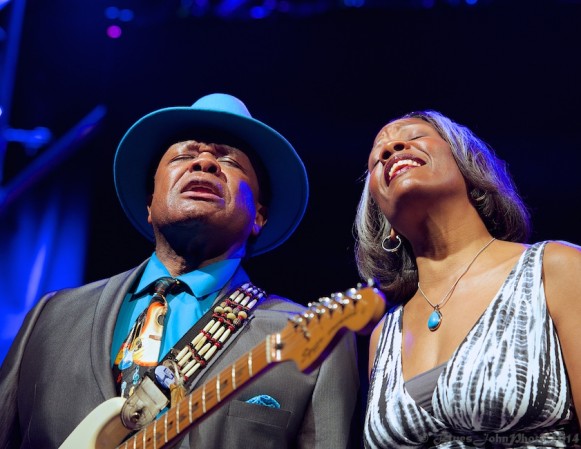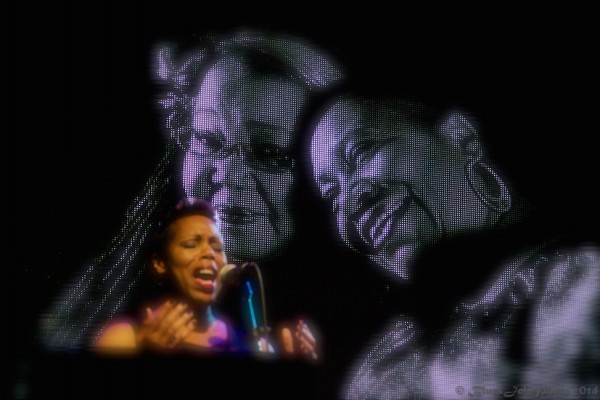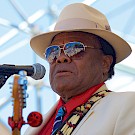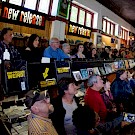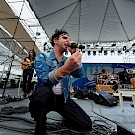From the sublime to the arcane, the inductees into the Oregon Music Hall of Fame comprise an august body of superstars, side players and contributors to the state’s musical history. They are bound by geography and a longtime contribution to the art, craft and business of an industry that gonzo journalist Hunter S. Thompson once famously decried as “a cruel and shallow money trench, a long plastic hallway where thieves and pimps run free, and good men die like dogs.” And one that also, perhaps, has “a negative side.”
Thompson’s salacious assessment might not wash so well here in the Beaver State. Possibly aided by its West Coast location and proximity to the music machine that is Los Angeles, as well as being an easy routing choice for touring artists who want to find a hip audience, Oregon has enjoyed a long history of musical contribution stretching across all boundaries and genres. Some of those creators left home, spreading their wings across the world and reaching incredible peaks of popularity and fame. Others kept it proudly local. But one thing is certain: When OMHOF announces your name and hands you your award, you have joined a rare class who have made music in Oregon and earned high honors for it.
Tonight Show bandleader and trumpeter Doc Severinsen is on that list. So are The Kingsmen, Paul Revere and the Raiders, the band Oregon, jazz legend Leroy Vinnegar, “Classical Gas” composer and artist Mason Williams, Oregon Symphony conductor James DePreist, rock and roll writer Mikal Gilmore, folkie Tim Hardin, soul man Robert Cray, trumpeter Chris Botti, and this year, indie rockers The Dandy Warhols and the worldly pop orchestra Pink Martini.
But so too are Ken Chase, who produced the rock anthem “Louie Louie”; seminal nightclub owner Tony DeMicoli; audio pioneer Bob Sterne of Northwest Sound; Oregonian music journalist Marty Hughley; KINK radio DJ Les Sarnoff and many others—names that only a few of us might know.
And that includes record store maven Terry Currier. Currier, owner of one of the last bastions of indie retail (and himself an inductee), is a tireless promoter of the Oregon music scene. A budding clarinetist bound for a college scholarship in music found his way, instead, into popular music via vinyl—that old dinosaur of aural storage—which he parlayed into Music Millennium and ardent activism in the world of independent record sellers. In 2002, he took over for a group that was losing steam, the Oregon Music Coalition, which had made a valiant attempt throughout the ’90s to establish and sustain a hall of fame to honor the legacy of music that Oregon has offered over the years.
That forerunner organization elected some 50 honorees, but disbanded. Currier, along with several other impassioned music scene members—including co-founder and former Sony Music marketing, sales and promotion expert Janeen Rundle and former Crazy 8s manager Marc Baker—set about building the Oregon Music Hall of Fame in May 2004, and inducted a new crop of inductees in 2007.
“I had been encouraged for three years by Buck Munger,” says Currier (Munger being the founder of Portland’s Two Louies magazine, after a career as an artist liaison for Gibson, Sunn and other musical instrument manufacturers). “His main thing was to have an Oregon Music Hall of Fame to recognize the legacy artists. I kept telling him I didn’t have enough time.”
But true to form, Currier, Rundle and the ardent new board found the time and motivation to step up. Though the new regime bestowed awards to its own first class of inductees in ’07, it also included the previous OMC inductees, many of whom had no idea they’d been inducted in the first place. Each year, OMHOF awards five artist, two side player and two industry awards, plus album and artist of the year.
The annual accolades were held on Oct. 4, 2014, and although honoring those in attendance was a pleasure, the real emotion of the night was wrapped up in reflecting upon the legacy of several dearly departed greats of the Portland music scene. Album of the Year honoree Janice Scroggins was remembered by producer Michael Allen Harrison with help from her daughter Nafisaria Scroggins-Thomas, even announcing that the music will live on because the pair just decided to make a new record together. The night before the induction ceremony also saw the passing of Scroggins’ soul sister Linda Hornbuckle, which meant the freshly inducted Jay “Bird” Koder’s tribute with Tracey Harris was immediately revised to honor both ladies.
This feeling of OMHOF’s ceremony being a vast family affair permeated the night as Signe Anderson was inducted by her daughter—sporting a Jefferson Airplane tee—and grandson, while show closer, the always-dapper Norman Sylvester, was joined by his elegant daughter Lenanne Miller-Sylvester as he sang the lyrics, “Thanking god for having Linda [and] Janice in my life.”
Likewise, the embodiment of a grand Portland musical family—Pink Martini—also thanked a lost member, longtime percussionist Derek Rieth. There in the flesh or spirit, everyone onstage felt sincerely blessed to be a member of the Portland music community.
Professionals aside, in many ways the hall of fame moniker has been a hindrance. OMHOF, as it ramped up, wanted to be more than just an awards show, and the group has become far more than a musty hall of fame.
Rundle, who handled the drafting of most of the organization’s articles of incorporation and bylaws and who grew up around music, was adamant about this tenet. “I reiterated that we really need to make our programs full-circle,” she says, “as in, we need music education to be kept alive in our schools to provide inspiration and the opportunity for students to even know to ask the question, ‘I would like to learn a musical instrument, how can I do that?’ Terry backed me up and the new board ratified it!”
“Today, most of our efforts are music education,” Currier says, and that includes a profound statewide reach.
Two programs—a volunteer-run music in the schools offering and educational scholarships—are the thrust of OMHOF’s efforts. Rundle, director of music education programs, spearheads workshops and assemblies alongside rock violinist Aaron Meyer, who, since 2009, has performed some 80 school assemblies to some 35,000 young people, many of whom lost music education due to school budget cuts.
In its first year of operation, the group scraped together a single $500 scholarship. By the second year, OMHOF was cutting checks for four to five $1,000 scholarships. By last year’s award show, thanks in part to early board member Baker, four deserving recipients each received $2,500 scholarships.
“My little baby over time is that I’ve gotten more intrigued by scholarship,” says Baker (who also hosted “The Church of Northwest Music” on KBOO for 13 years). He stepped up his fundraising efforts last year to raise the necessary $10,000 to be able to award the larger grants.
OMHOF gets word to music educators and principals throughout Oregon’s high school music programs starting November 1 of each year and pulls in well north of 100 applications, many from small towns. “It’s amazing,” Currier says. “They can’t send in CDs or recorded music because not everybody has the ability to do that. We have them send in transcripts, letters from music directors, and write an essay.”
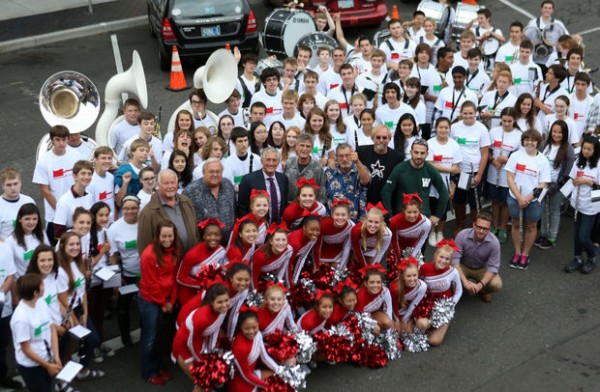 Mayor Charlie Hales and The Kingsmen amongst a sea of Lincoln, Wilson, and David Douglas High School students on Louie Louie Day in 2013
Mayor Charlie Hales and The Kingsmen amongst a sea of Lincoln, Wilson, and David Douglas High School students on Louie Louie Day in 2013
A vetting group reviews the materials and selects the recipients who come to Portland to perform at a separate event. Many of these kids have gone on to higher musical education at Juilliard, Yale, Brown and other prestigious schools, not to mention music careers. It’s a nice bump for a budding player.
“I’m very honored to receive this scholarship,” wrote Kyle Zimmerman, a saxophonist and one of this year’s recipients, “because OMHOF is a prestigious institution for music and music is very important to me. This will help me a lot financially because I plan to study at Berklee College of Music this coming school year as a performance major.”
Rundle is quick to laud the Sisyphean efforts of OMHOF’s board of directors, the unpaid volunteers who fuel the organization, which include (in addition to Currier, Rundle and Baker) the “accountant for the stars,” as Rundle calls him, Tom Holland; bassist and ardent music promoter J. Michael Kearsey; former KINK radio DJ and current Portland Radio Project music director Inessa Anderson; former Oregon State Fair entertainment coordinator and Radio Disney account executive Penny Williams (now with Portland Monthly); and tireless Portland music supporter and father of three Portland Public School kids Bill Frith; plus new board members include grant-writing specialist Wayne Pierce and well-known broadcaster Dave Scott (of KINK and KGON fame).
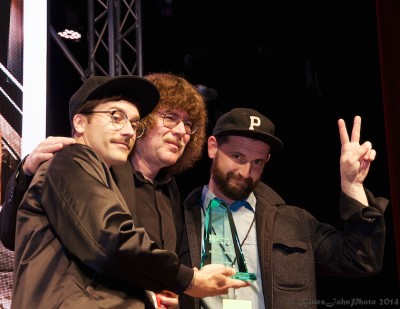 Portugal. The Man with Terry Currier accepting their Artist of the Year awardEven some of the young lions not yet eligible for OMHOF consideration are getting into the act. Last fall, Portland’s Portugal. The Man donated a matinee performance at the Crystal Ballroom for underage kids (and adults accompanied by someone under 18) to attend. They even enlisted the aid of a few area high school band members to accompany them on a song live onstage. The sold-out event helped raise some $6,000, with help from Portland’s KNRK.
Portugal. The Man with Terry Currier accepting their Artist of the Year awardEven some of the young lions not yet eligible for OMHOF consideration are getting into the act. Last fall, Portland’s Portugal. The Man donated a matinee performance at the Crystal Ballroom for underage kids (and adults accompanied by someone under 18) to attend. They even enlisted the aid of a few area high school band members to accompany them on a song live onstage. The sold-out event helped raise some $6,000, with help from Portland’s KNRK.
“OMHOF does a lot of great work in Portland schools and we wanted to do something to help them and highlight all they do,” Portugal. The Man lead singer John Gourley said before the 2014 induction ceremony. Rumor has it band members even bid on an autographed guitar at this year’s OMHOF festivities where they also received Artist of the Year honors.
The work, and fundraising, is endless. The next round of information is on its way to schools and efforts toward next fall’s OMHOF event are already underway.
“The bottom line,” Baker concludes, “is that the whole message is to recognize Oregon’s musical past, and use that as a vehicle for education to support Oregon’s musical future.”
And that’s music to everybody’s ears.


